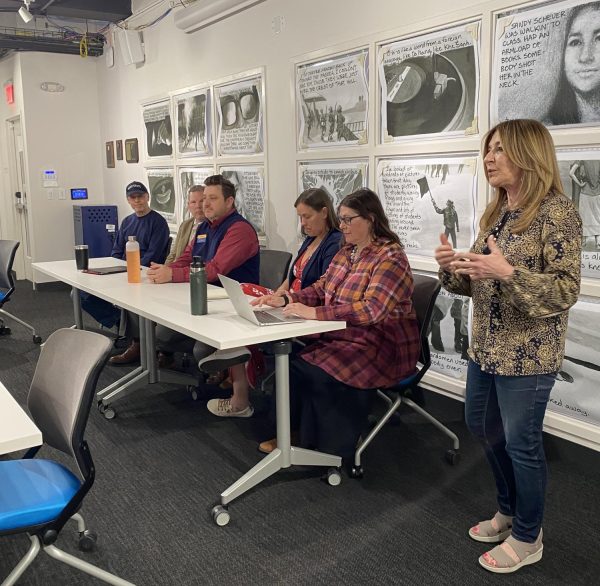Future RAs learn to be leaders
March 1, 2005
Potential resident assistants are participating in the Leaders Workshop, a part of the selection process for next year’s new hires.
The six-week workshop is designed to educate students who are interested in becoming an RA about the position and responsibilities.
Each session is two and a half hours, and there is a different theme for each week. The first week begins with a basic overview of what an RA is and does. The following weeks have themes dealing with diversity issues, student development theories, conflict management, ethical decision-making and community-building.
During the workshop, students must shadow an RA to get a first-hand look at the job.
John Swistok, international relations major, is participating in the workshop. He said the workshop has helped him make a decision about his future as an RA.
“The workshop is making me realize who I am and what I want to become,” Swistok said.
The workshop is part of a selection process students must go through, and it begins with filing an application and having references fill out a questionnaire about the candidate. Then the applicant has to go through a group interview.
After the Leaders Workshop, the residence hall directors of each hall bid on the remaining applicants. Each applicant has a folder with his or her information from the process. When the bidding time comes around, the RHDs look through the folders and decide who will work best in which hall.
Christina Shreckengost, RHD for First-Year Experience halls, said she looks for new RAs with many characteristics.
“RAs have a wide array of tasks: creativity, organization, counseling and discipline. We’re looking for someone with a good balance of all these traits,” Shreckengost said.
The RA responsibilities include community building, programming and disciplining. Administrative abilities and a sense of duty are also important in RA tasks.
Each facet of RA life is covered in training. RAs discuss topics such as suicide, depression, anger management and homesickness. They are also advised on stress, time management and multicultural interaction.
RAs are trained on how to program events for a specific hall and are assessed on the willingness to educate others in a structured format. RAs are in charge of programming floor meetings, social activities and service projects. They must also create informational bulletin boards for the halls.
To become an RA, students must have a 2.3 cumulative grade-point average and have completed 30 credit hours. Potential RAs can not be under university judicial sanction.
Being an RA has its benefits. There is a room fee waiver for $1,665 and a board fee waiver of approximately $1,120, which is the cost of the basic meal plan.
First-year RAs are paid a stipend of $650 and returning RAs are paid a stipend of $750 per academic year in nine installments.
Swistok said he is not becoming an RA solely for the economic reasons.
“I want to be the person to go to for advice and expertise,” he said. “I want to be a friend and listen.”
Contact room and board reporter Alison Turner at [email protected].























